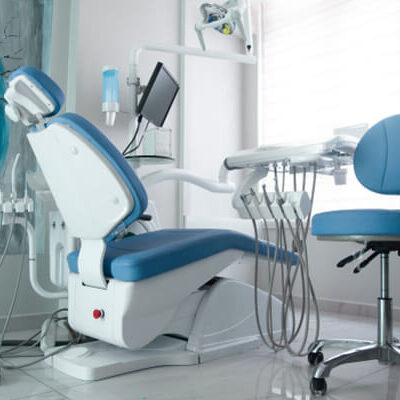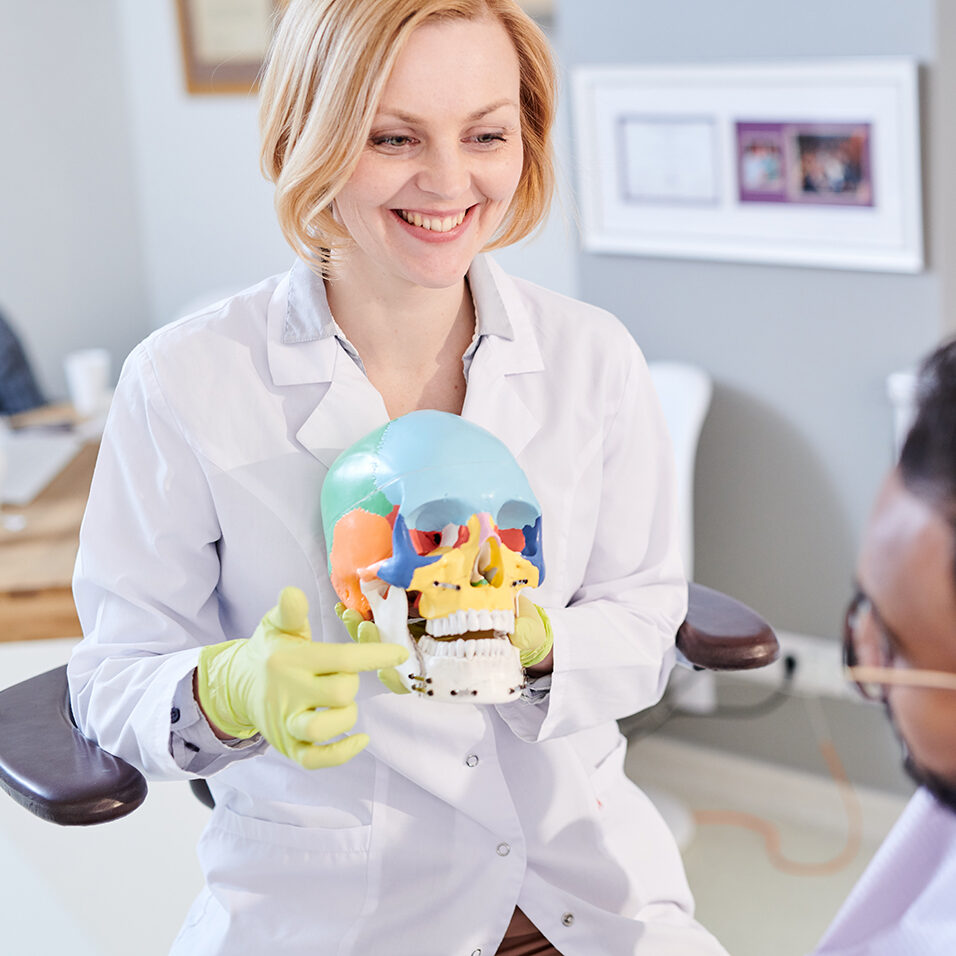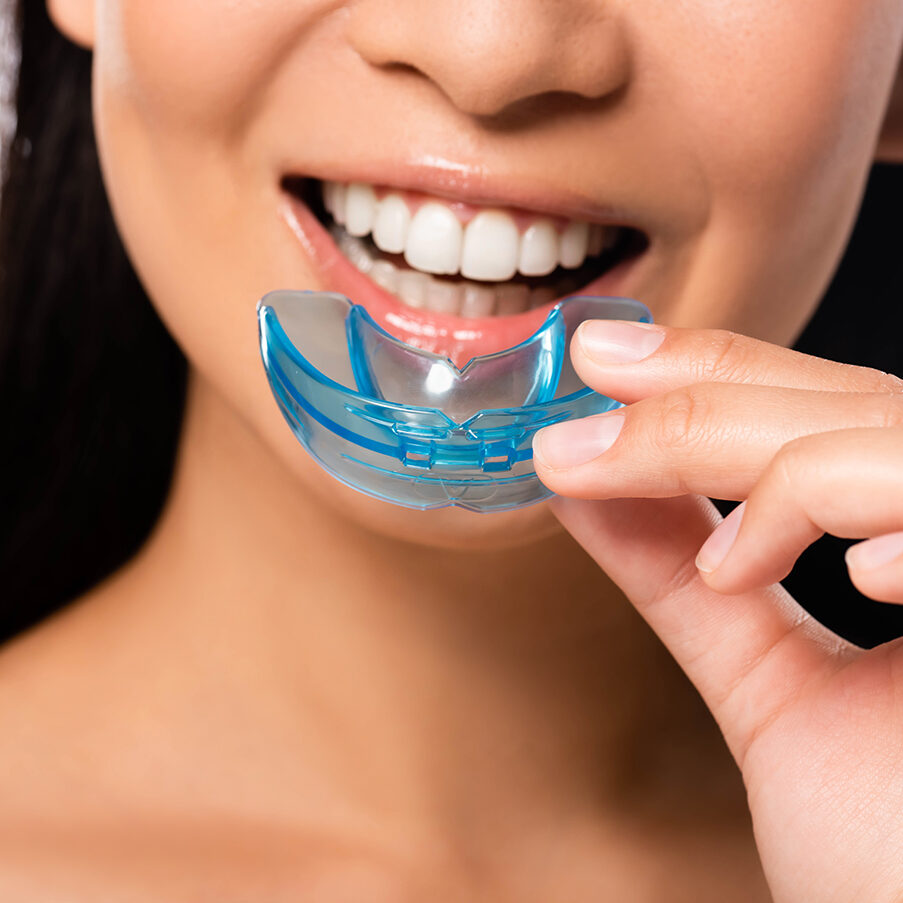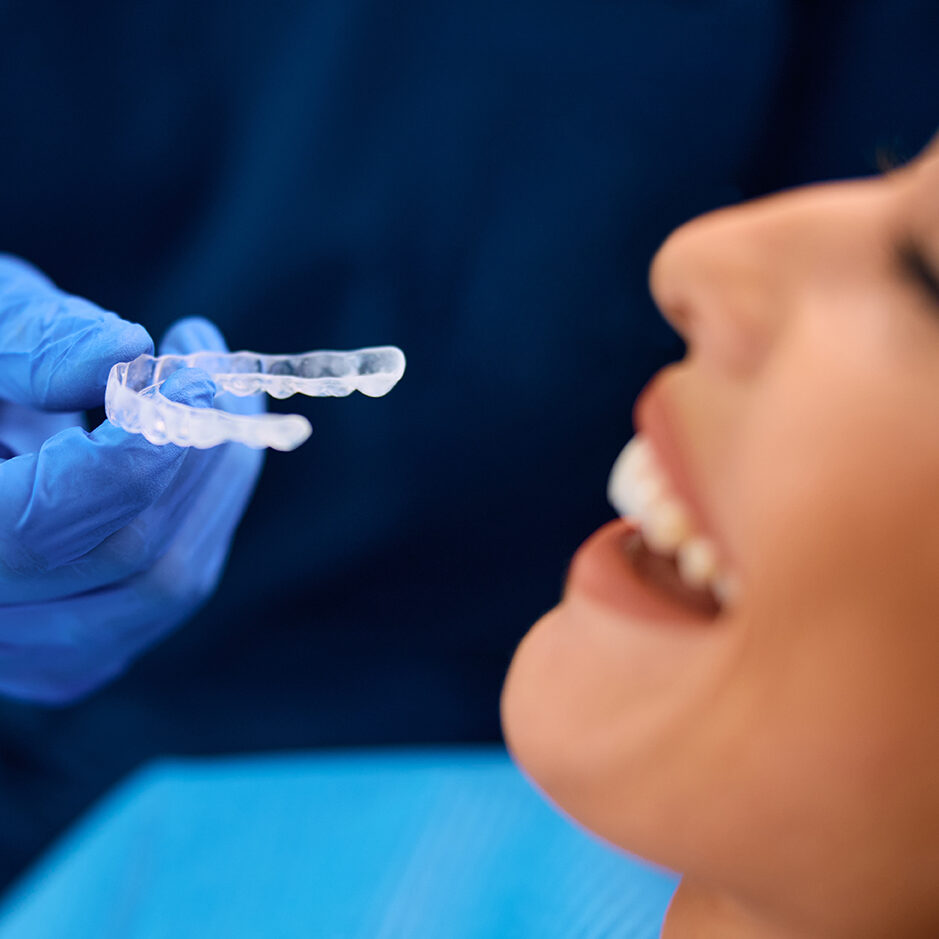What is TMJ?
TMJ is also known as Temporomandibular Joint Disorder, and it occurs in the joint where the upper and lower teeth meet. The jaw is a hard-working joint, and it must be correctly balanced. When problems occur in the jaw joint, pain can radiate to all the related parts of the head and neck.
The causes of TMJ disorders can be multifactorial, including issues like arthritis, jaw injury, chronic clenching or grinding of teeth (bruxism), and structural jaw issues. If someone experiences these symptoms, it's often advised to consult with a healthcare provider or a dentist specializing in TMJ disorders for appropriate diagnosis and treatment.
Common symptoms include:
Effective TMJ Treatment Approaches

Examination Process
The journey to resolving TMJ issues at Reed Dental Medicine begins with a thorough examination. Patients describe their symptoms, and our dentists diligently review both dental and medical histories to identify potential causes of discomfort. Utilizing advanced digital imaging technology, we assess the patient's jaw structure and facial muscle functionality, and meticulously examine the alignment of the teeth, especially how the upper and lower teeth meet during biting.
This comprehensive evaluation helps pinpoint the root causes of TMJ, such as misalignment of the bite, inflammation, or muscle weaknesses, setting the stage for effective treatment.

Non-Surgical Treatment Options
Once the causes of your TMJ are understood, we can tailor a non-surgical treatment plan. Commonly, treatments such as bite adjustments or the use of a bite guard or orthotic are highly effective in alleviating symptoms.

Bite Adjustment
Bite adjustments are made by reshaping the teeth to correct alignment issues. This can involve building up worn-down teeth to restore proper jaw alignment or grinding down overly high fillings to ensure that the teeth fit together correctly. In cases where teeth need to be repositioned, clear and removable braces offer a less invasive solution compared to traditional braces.

Orthotics
For TMJ treatment, we use orthotics made from durable acrylic to correct the positioning of the lower jaw. These devices are designed to relax the jaw joint and its associated muscles, promoting better joint and muscle balance and aiding in the alignment of related body parts like the neck and upper back. The typical duration for wearing an orthotic is about four weeks.

Night Guards
To prevent further damage from teeth grinding—a common exacerbator of TMJ issues—our custom-fitted hard acrylic night guards cover the upper teeth. These guards help protect against the wear and tear caused by grinding, contributing to a long-term solution for TMJ discomfort.
At Reed Dental Medicine, we are committed to providing personalized and effective TMJ treatments to improve your quality of life.
